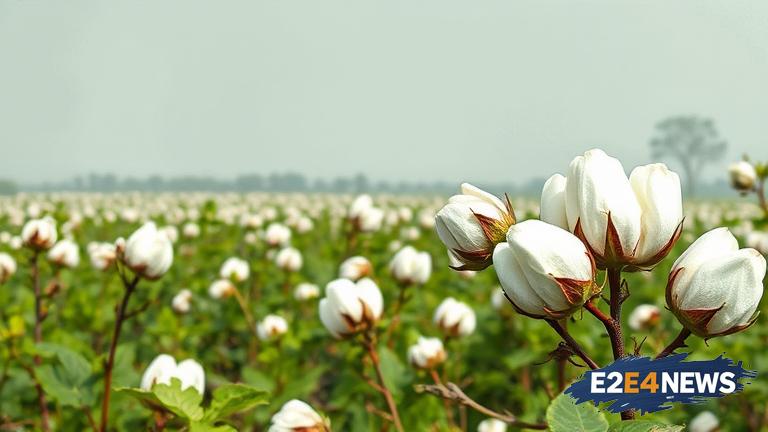A controversy has surfaced in the agricultural sector of Punjab, with a disagreement arising over the cotton output data for the current season. The dispute has been sparked by the release of conflicting numbers by different stakeholders, including the Punjab Crop Reporting Service and the Pakistan Cotton Ginners Association. According to the Punjab Crop Reporting Service, the cotton output for the current season is expected to be around 5.5 million bales, whereas the Pakistan Cotton Ginners Association has estimated the output to be significantly higher, at around 7.5 million bales. The discrepancy in the numbers has raised concerns over the accuracy of the statistics, with some stakeholders questioning the methodology used to calculate the output. The cotton output data is crucial for the textile industry, as it helps to determine the demand and supply of cotton, and any inaccuracies in the data can have significant implications for the industry. The dispute has also highlighted the need for a more transparent and reliable system for collecting and reporting agricultural data. The Punjab government has been accused of manipulating the data to show a higher output, while the Pakistan Cotton Ginners Association has claimed that the government’s numbers are unrealistic. The association has also alleged that the government is trying to hide the actual output to avoid paying compensation to farmers who have suffered losses due to crop damage. The controversy has sparked a heated debate among stakeholders, with some calling for an independent audit of the data to resolve the dispute. The issue has also been taken up by the media, with several newspapers and TV channels reporting on the controversy. The dispute has significant implications for the textile industry, which is a major contributor to the country’s economy. The industry relies heavily on cotton, and any disruption in the supply chain can have significant consequences. The government has been urged to take immediate action to resolve the dispute and ensure that accurate data is available to stakeholders. The Pakistan Cotton Ginners Association has threatened to take legal action if the government does not revise its numbers. The controversy has also raised questions about the credibility of the agricultural data in the country, with some stakeholders calling for a more robust and transparent system for collecting and reporting data. The issue has sparked a wider debate about the need for reforms in the agricultural sector, including the introduction of more advanced technologies and methods for data collection. The dispute has also highlighted the importance of accurate data for informed decision-making in the agricultural sector. The government has been accused of failing to invest in the agricultural sector, leading to a lack of reliable data and inefficient systems for data collection. The controversy has significant implications for the country’s economy, with the textile industry being a major contributor to the GDP. The dispute has also raised concerns about the impact on farmers, who rely on accurate data to make informed decisions about their crops. The issue has sparked a call for action from stakeholders, including the government, farmers, and industry leaders, to work together to resolve the dispute and ensure that accurate data is available to all. The controversy has highlighted the need for a more collaborative approach to data collection and reporting, with all stakeholders working together to ensure that accurate and reliable data is available. The dispute has significant implications for the country’s agricultural sector, and it is essential that the issue is resolved quickly to avoid any further disruption to the industry.
